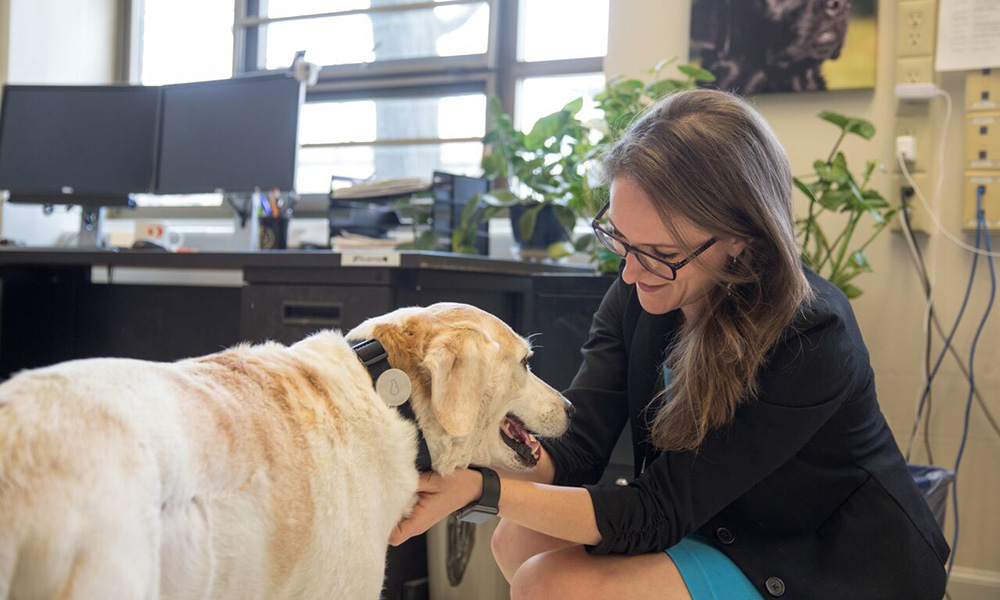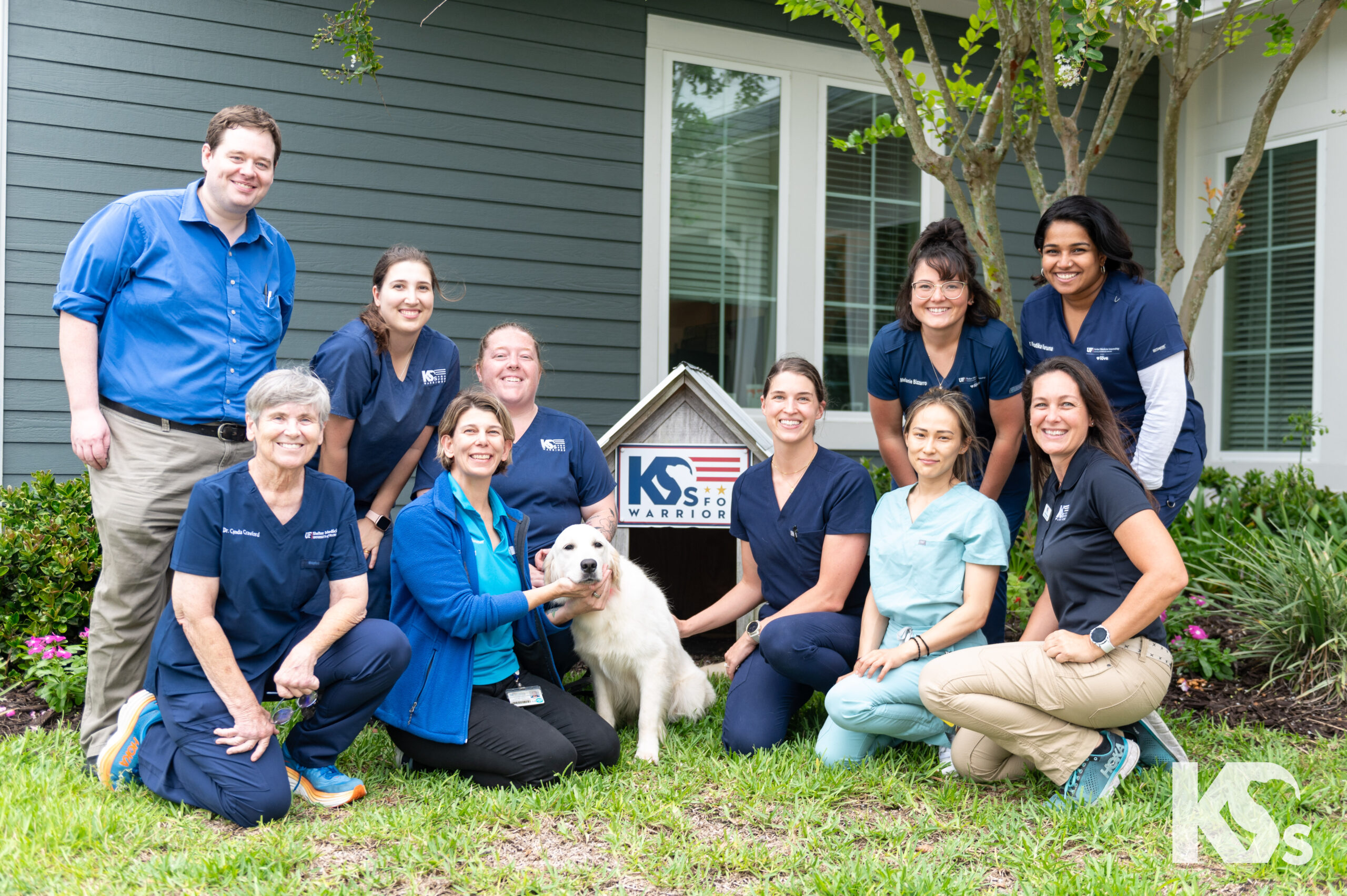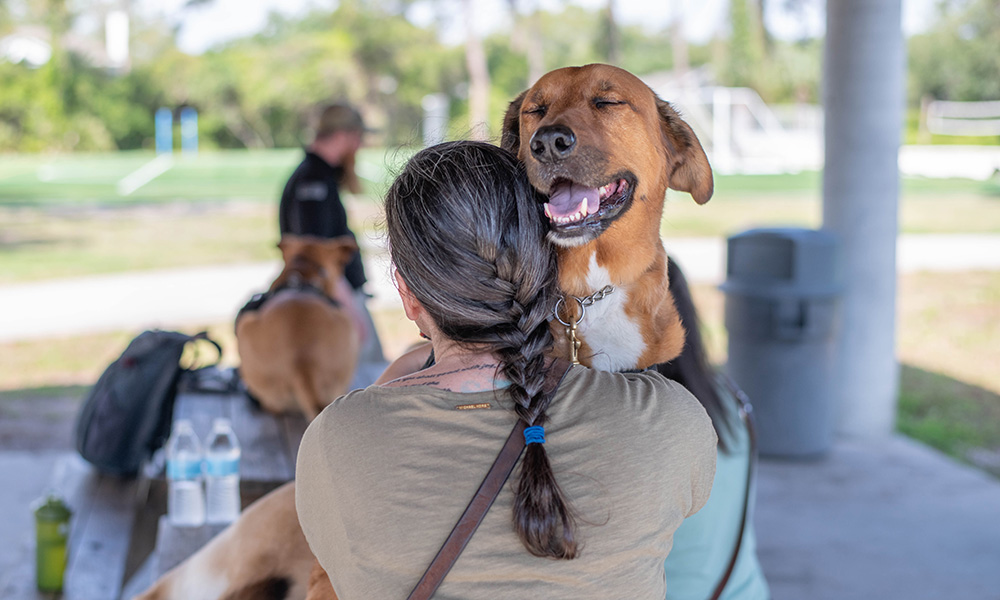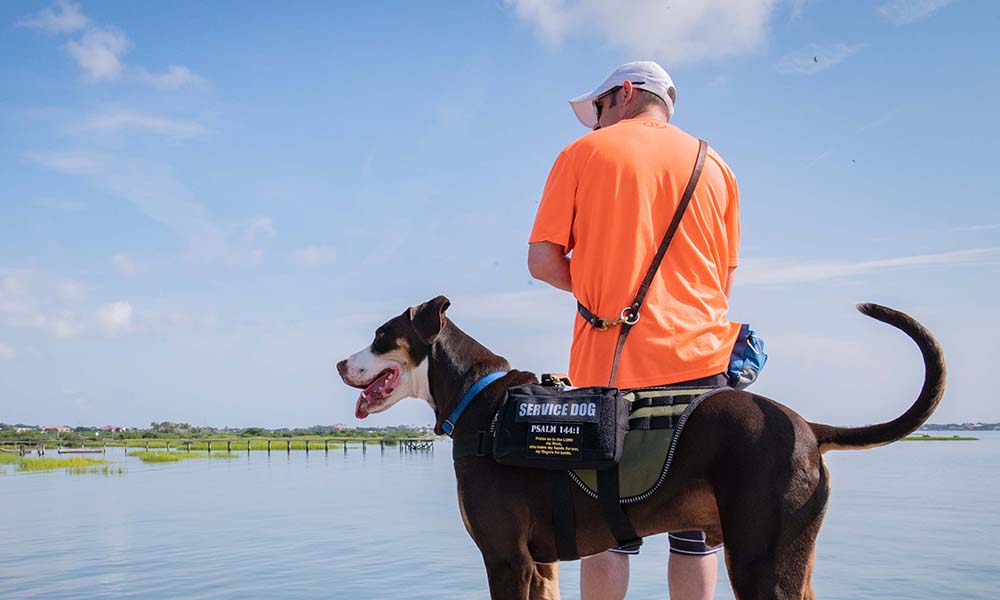
In 2015, K9s For Warriors and Dr. Maggie O’Haire of Purdue University’s College of Veterinary Medicine began a collaboration to produce a first of its kind research study. The aim of the research was straight-forward: find empirical evidence that Service Dogs mitigate PTSD symptoms in veterans. These symptoms can include debilitating anxiety, night terrors, uncontrollable anger, fear of public places, drug abuse, and even more tragically, suicide.
K9s For Warriors’ mission is to conquer veteran suicide and restore their dignity and independence by providing highly-trained Service Dogs to help mitigate their invisible wounds. The Organization for Human-Animal Interaction Research & Education (OHAIRE) is run by Dr. O’Haire at Purdue University. The lab studies many areas of human-animal interaction, including service animals for veterans with PTSD.
Why Conduct This Research?
Although there are countless anecdotal stories of Service Dogs successfully alleviating PTSD, testimony alone doesn’t validate them within the healthcare industry. Peer-reviewed, scientific data is required to prove service animals indeed are an effective treatment tool. Through this research partnership, that science now exists.
The Department of Veterans Affairs — the establishment charged with caring for US veterans — has repeatedly denied the efficacy of Service Dogs in treating PTSD. Instead, they’ve prescribed piles of pills to thousands of veterans. This often creates more problems and rarely leads to reduction of symptoms. By gathering undeniable, scientific data, K9s For Warriors’ hope is the VA will no longer justify opposition to Service Dogs, but rather integrate them as a standard PTSD treatment option for all veterans.
The Studies
Dr. O’Haire’s lab assessed 141 veterans with PTSD. Of those veterans, 75 had graduated with a Service Dog from K9s For Warriors; 66 were on the waitlist to receive one. Several measurements were documented from participants:
- Social participation
- Family functioning
- Sympathetic Nervous System arousal
- Sleep/wake behavior
- Cortisol awakening response
- Dog interactions
February 2018: The first study was published in the Journal of Consulting and Clinical Psychology. Preliminary results confirmed Service Dogs confer a host of benefits to veterans’ wellbeing, including:
- Lower overall symptoms of Post-traumatic Stress
- Lower levels of depression
- Higher levels of life satisfaction
- Higher overall psychological well-being
- Lower levels of social isolation and greater ability to participate in social activities
- Less absenteeism from work due to health among those who were employed
June 2018: The second landmark study was published in the journal Psychoneuroendocrinology. Data was gathered from saliva samples of participants to measure cortisol levels (“the stress hormone”). Researchers found that PTSD-sufferers who had a Service Dog produced cortisol levels closer to those of a standard healthy adult. This is the first physiological evidence ever supporting Service Dogs as an effective solution for managing PTSD symptoms.
What's Next?
The research doesn’t stop here. Another phase, funded in part by the National Institutes of Health, is currently underway. It’s a longitudinal, clinical trial to better understand the effects Service Dogs have over a longer period of time.
K9s For Warriors’ end goal is to give all veterans access to Service Dogs if they choose. These research findings will not be exclusive to K9s For Warriors. Rather, similar organizations will also benefit from the data. Ultimately, we’re pushing the VA to accept this research, and consequently implement Service Dogs into standard PTSD treatment. Because every hero deserves to heal.
*These studies were also funded by Merrick Pet Care, the Human-Animal Bond Research Institute, & Bayer Animal Health. Merrick Pet Care and Elanco Animal Health are longtime sponsors of K9s For Warriors.





